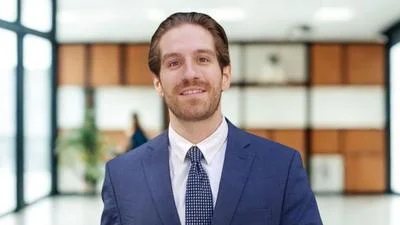Mayor Lori E. Lightfoot and the City of Chicago today announced that the Crisis Assistance Response and Engagement (CARE) Program has expanded to four additional communities with a new team structure. Approval from the Illinois Department of Public Health (IDPH) of a new response protocol means Chicago Fire Department (CFD) Community Paramedics and Chicago Department of Public Health (CDPH) mental health practitioners can respond to 911 calls that involve a mental health crisis without involving police officers.
The CARE program has been operating in Lakeview/Uptown and Auburn Gresham/Chatham since September 2021. To date, teams responding to mental health-related calls in these communities have operated with a CFD Community Paramedic, CDPH Mental Health Clinician, and Chicago Police Department (CPD) Crisis Intervention Team (CIT) Officer.
Since September, the teams have responded to over 200 911 calls and conducted over 170 follow-ups (telephonically and in-person). Most CARE responses result in services provided in the community or initial consultation with the CARE team and then a means of transport to the hospital or alternate destination, like a shelter or crisis stabilization center.
"For too long our residents have seen the need for mental health or substance use assistance when making a 911 call," said Mayor Lightfoot. "Today, we are proud to address that need with the expansion of our 911 Alternate Crisis Response and Engagement Program, CARE, to assist those who need this support the most. The expansion of the CARE program will ensure residents can be connected to trained specialists in behavioral and mental health, providing better outcomes for 911 callers and communities.”
Starting this week, the new format for the CARE alternate response teams will include a CFD Community Paramedic and a CDPH Mental Health Clinician. The program will run in Chicago Lawn, Gage Park, West Elsdon and West Lawn. The alternative response teams will operate Monday through Friday from 10:30 a.m. to 4 p.m. For the next few weeks, the new team will be conducting district familiarization activities such as meeting with healthcare providers, community organizations, and other community members before they begin responding to calls in June.
The City’s Office of Emergency Management and Communications (OEMC), which manages the 911 call center, recently started conducting training on the new response protocols with 911 dispatchers.
“Historically, responses to mental health or substance use crises have been left to our police officers, in addition to everything else we ask them to take on,” said CDPH Commissioner Allison Arwady, M.D. “I’m so proud that the City of Chicago is expanding our CARE program because it appropriately puts health at the center of our mental health crisis response. It’s not just about the 911 call, it’s also about following up with residents to break the cycle of repeated crises and get people the care and resources that they need.”
As part of the CARE program, mental health professionals from CDPH work in the city’s 911 emergency communications center. Embedded clinicians provide support and mental health consultation to 911 professionals, seeking to prevent and preempt cyclical calls by addressing underlying needs related to mental health.
Part of the CARE pilot involves offering eligible residents transfer to settings in the community instead of the emergency department such as psychiatric living rooms, shelters, mental health clinics, and crisis centers. CARE team members also follow up with individuals who receive CARE services one, seven, and thirty days after their initial contact. Individuals are linked to community-based services to ensure that they are safe and stable and that their underlying needs are being addressed.
Fire Commissioner Nance-Holt stated, “The men and women of the Chicago Fire Department are trusted members of the communities we work and live in. Our Community Paramedics are proud to work within the CARE program addressing health-care inequities and ensuring that individuals in crisis are linked with the appropriate resources to address their needs.”
Original source can be found here.






 Alerts Sign-up
Alerts Sign-up